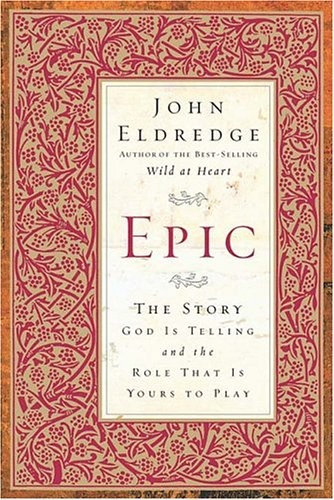Contentment
 Richard Swenson’s Contentment: The Secret to a Lasting Calm was recommended on a blog several years ago (I don’t remember which one!). I started reading it then, but it didn’t “take.” Recently I picked it up again, and this time I completed it.
Richard Swenson’s Contentment: The Secret to a Lasting Calm was recommended on a blog several years ago (I don’t remember which one!). I started reading it then, but it didn’t “take.” Recently I picked it up again, and this time I completed it.
I have mixed feelings about this book. The up side is that it focuses the reader’s attention in a sustained way on a worthy subject and offers some interesting observations about our culture. The concept of contentment is not difficult to grasp, but when was the last time you meditated on it, or on whether your life reflects it? In an increasingly consumptive culture, this book invites you to step back and assess to what extent your heart may have absorbed the spirit of the age even when it runs counter to your principles. Swenson makes some interesting observations about biblical attitudes toward possessions, and he purports to offer a history of the concept of contentment in western culture.
This is where my two complaints with the book come in. First, Swenson is often mind-numbingly general. Here’s one typical example. Swenson is talking about the last quarter century:
Without warning, progress went vertical, heading straight for the stratosphere. We are locked in an acceleration trap and somehow can’t escape. The entire globe seems to be making it up as we go along. The math is now behaving strangely and no longer works in a variety of critical settings. The numbers are increasingly incomprehensible, the curves increasingly exponential (the profusion curve is actually hyperexponential), and the math increasingly dysfunctional. As a result, nearly everything is being shaken — economics at personal, family, local, state, and federal levels; budget deficits; the stock and bond markets; the U.S. dollar; credit ratings; the middle class; real estate; higher education; elementary and secondary education…
Believe it or not, he goes on for another half a page peppering the reader with more items in this list. Do you have a sense that he may be touching on something important? Absolutely. This is why it’s a shame that he cannot write about it in a clear, systematic way. The pseudo-scientific terms, global focus, and hypnotically long list leave the reader with a general sense that we’re going to Hell in a hand basket, but without any real comprehension of why. His history of ideas chapter gives anywhere from a half a page to two pages each on whole eras of human history. It’s hard to take seriously.
Another irritating feature of Mr. Swenson’s writing is his over-reliance on quotations. Rather than quoting from a few choice sources to illuminate his own ideas, he offers lists of quotations in the belief that he is representing an era of history. At times this destroys the continuity of his own argument and makes the book read like Bartlett’s. I love a pithy quotation, but lists of them degenerate into meaninglessness.
There is an eccentric quality to the book that I am not sure what to make of. Swenson himself broadcasts his credentials as a medical doctor on the cover of the book, even though he left private practice to become, as he says, a “futurist” — a student of “the intersection of health, culture, faith, and the future.” Does he mean he sees himself as playing a prophetic role? I wasn’t sure. He certainly comes across as an isolated voice rather than part of any established community.
But at the same time, he offers some discerning biblical commentary, intriguing observation, and spiritual insight that I found useful and interesting. I just wish the book were less uneven. At the end, Swenson offers a series of prescriptions for restoring contentment. I will propose a counter-prescription in reply. My Rx for this book: make it into several books, each with a more narrowly defined, more fully developed focus. There are, maybe, some profound truths to be had here, but in their present form they were very difficult for me to grasp.




2 Comments
GretchenJoanna
I take it this is the same Swenson who wrote Margin some decades ago? I loved that book and have never stopped talking about it. But this one, thanks to your review, I won’t bother with. I also need some specifics, some concrete examples to convince me the author actually has something to say.
Did you ever read The Rare Jewel of Christian Contentment by Jeremiah Burroughs? I really enjoyed it as far as I got, also decades ago.
Janet
Yes, this is the author of Margin. I think many of the ideas appear in both books. He does have a unique perspective, and I found myself reporting on various points to my husband when I first started reading. I love Swenson’s affirmation of the reality of the spiritual. And he is completely right about the rapid pace of development in many areas; it’s impossible to absorb! But I felt the general focus prevented the discussion from going anywhere. It frustrated me.